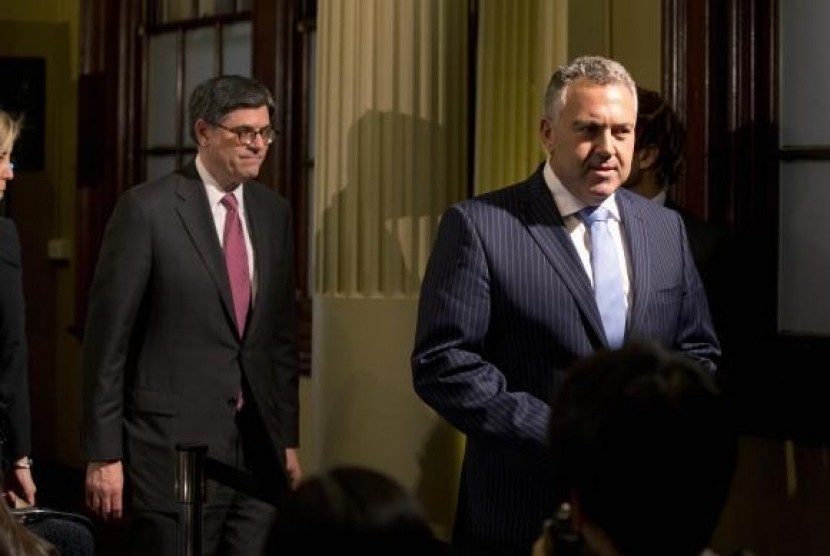REPUBLIKA.CO.ID, SYDNEY - The world's rich nations pushed back against emerging market complaints about the spillover effects of their monetary polices, saying on Friday they had to get their own houses in order and get with the agenda of lifting global growth.
As finance ministers and central bank chiefs from the Group of 20 developed and emerging gather ahead of a weekend meeting in Sydney, many are already talking at cross purposes. Emerging nations want the US Federal Reserve to calibrate its winding down of stimulus so as to mitigate the impact on their economies. Developed members reply that the troubles in the emerging world are mostly homegrown and domestic interest rates have to be set with domestic recoveries in mind.
"Emerging markets need to take steps of their own to get their fiscal house in order and put structural reforms in place," US Treasury Secretary Jack Lew said at a financial conference in Sydney ahead of the ministerial meetings.
That was a sentiment very much echoed by the finance ministers of Japan, Britain and Germany. German's Wolfgang Schaeuble told CNBC that emerging countries first had to do their homework, before demanding solidarity from the rest of the G-20. Japan's Taro Aso said the Fed's taper was positive as it reflected an improving US economy, even if it raised the risk of sharp capital outflows from some others.
"It is important for emerging economies to correct these things by making their own efforts," Aso said in Tokyo.
Developing nations from South Africa to Turkey to Russia have seen their currencies crumble in recent months as the prospect of higher returns in the United States sucked foreign funds from their economies.
South Korea Deputy Prime Minister, Minister of Strategy and Finance, Hyun Oh Seok, suggested the Fed and other major central banks could at least strive to avoid surprises in their policy.
"QE tapering should be undertaken in a very orderly manner and carefully calibrated given the global economy today is very much interconnected," Hyun told Reuters.
The head of the US Treasury also had pointed advice for other major nations, calling on China, Japan and Europe to make domestic demand the engine room of growth.
"I think it's a cross-cutting theme to what we see as the challenge for the global economy," said Lew. "The US recovery is healthy and moving very much in the right direction and picking up velocity, but it can't make up for a lack of demand and growth in the other key economies."


